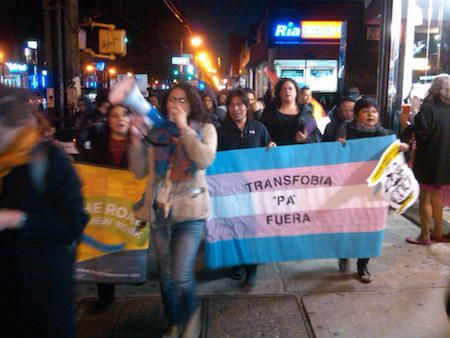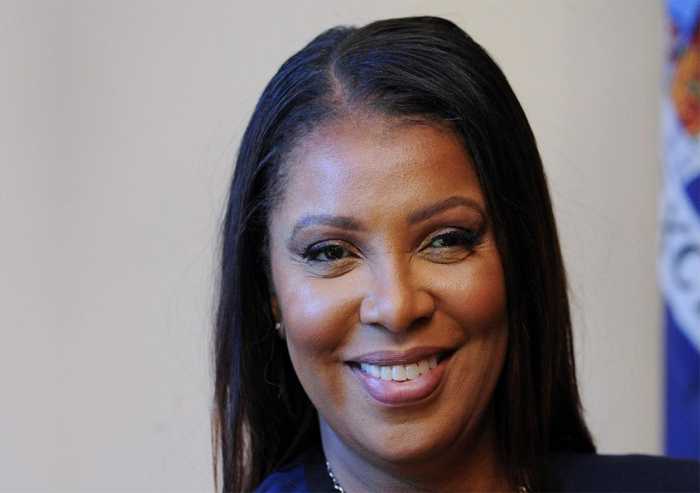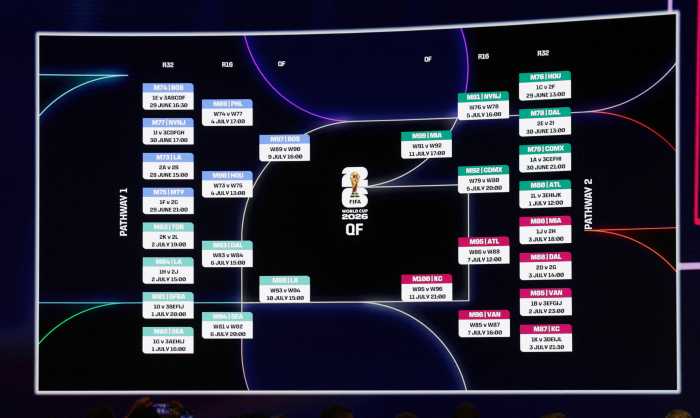The accused killer of Islan Nettles may have to contend with as many as a half-dozen statements in which he admitted to striking the blows that led to the death of the 21-year-old transgender woman on a Harlem street in 2013.
“James introduced himself to me and told me that he was the individual who actually committed the crime,” said Simone Gordon, referring to James Dixon, in Manhattan Supreme Court on March 31.
Dixon, 25, is charged with first-degree manslaughter, which alleges that he intended to cause serious injury to Nettles and caused her death, second-degree manslaughter, which alleges that Dixon recklessly caused Nettles’ death, and first-degree assault, which alleges he intended serious injury to Nettles. None is charged as a hate crime. Nettles was assaulted early in the morning on August 17, 2013 and died on August 22.
In pre-trial hearing, admissibility of statements by James Dixon considered
Police initially arrested Paris Wilson, Gordon’s son, in the attack. But on August 20, Dixon appeared at Gordon’s home allegedly saying he was responsible for Nettles’ death. Gordon’s testimony was that she escorted Dixon to a nearby Police Service Area office where Dixon again confessed.
“He did admit to it to the officer who was at the desk,” Gordon said.
A lieutenant at the office called detectives at the nearby 32nd precinct who were investigating the case, and they picked up Dixon and transported him to the precinct where he gave two written statements and a videotaped statement, all dated August 21.
“He informed me that he had been drinking and smoking with some friends,” Heriberto Vasquez, a detective in the 32nd precinct, testified at the hearing, which was held to determine if Gordon’s testimony and the three statements from Dixon will be admitted into evidence at trial.
Vasquez said that Dixon told two similar stories about the attack. In one version, Dixon and his friends left for a party, but encountered Wilson and others on the way who told them the party was canceled. As they returned to Dixon’s home, they met Nettles and two of her friends. When Dixon tripped, Nettles laughed, and he allegedly punched her once knocking her to the ground. In his statement, he said he delivered a second blow to Nettles as she lay on the sidewalk.
In the second version, Dixon began to flirt with Nettles.
“Then his friends began to heckle him,” Vasquez said, reading from one of the written statements. “Then he realized the person was transgender and he hit the person… ‘That person fell to the ground then I hit him again.’”
In the second version, Dixon and Nettles engaged in some pushing before the blow.
Dixon offered a rationale that sounds similar to a homosexual panic defense.
“A couple of days before, I got fooled by a transgender and that might have led to this, blind fury,” Vasquez said, reading from a statement.
Dixon’s videotaped statement was not played in court on March 31. Norman Williams, Dixon’s attorney, argued that if Daniel Conviser, the judge hearing the case, excludes the video, it could still have the effect of prejudicing jurors who might read about it in press accounts prior to jury selection. Conviser will review the video and rule on April 1.
The prosecutors, Nicholas Viorst and Laura Millendorf, both are assistant district attorneys, plan to also present two witnesses, Nettles’ two friends, who will testify about the incident as well as a pro se motion –– prepared without the aid of an attorney –– that Dixon submitted in which he admitted to the assault, but denied having the legally required state of mind to be guilty of the charges against him. The motion is sealed.
The prosecution may have other witnesses who heard Dixon confess.
The prosecution will also call a reporter from dnainfo.com, presumably Trevor Kapp, who conducted a 2015 jailhouse interview with Dixon in which he denied being present when Nettles was assaulted, saying police had arrested the wrong man.
The case against Dixon is complicated by Wilson’s arrest. Wilson, who was 20 in 2013, was charged with misdemeanor assault and harassment in the assault. In 2013, police had one witness who said she saw Wilson “strike ___ about the head with a closed fist, causing ___to fall to the ground. Once on the ground, the defendant continued to strike ___ in the face,” according to the 2013 criminal complaint that was filed against Wilson.
At a November 2013 hearing in Wilson’s case, Viorst said his office was not prepared to move forward on the case, adding that the district attorney’s office was “aggressively investigating” the crime and could bring homicide charges against “Mr. Wilson or someone else” in the future.


















